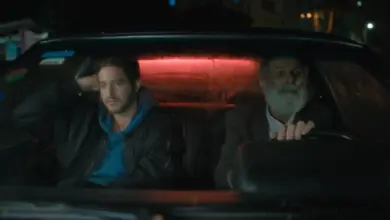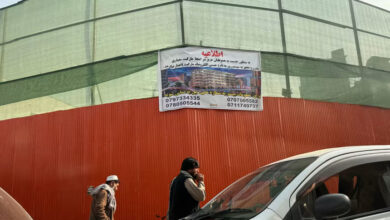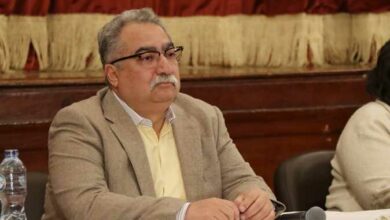Sunday night marked the premier of Palestinian film Al mur wal rumman (Pomegranates and Myrrh, 2008) in Egyptian movie theaters.
The film is the first feature film by Palestinian writer-director Najwa Najjar, and is one of the few Arabic independent films to break into the commercial Egyptian cinema market.
Pomegranates and Myrrh, which has been awarded numerous prizes, including the Cinema in Motion Award at the San Sebastian International Film Festival in 2008, delves into the daily rituals of Palestinians living under occupation, through a love triangle between Amar the folk dancer, Zeid the olive grove owner, and Kies the dance trainer who returns to re-open a funfair.
Najjar, who lives in Ramallah, studied film-making in the US and since 1999 has created several unique documentaries on Palestinians. Al-Masry Al-Youm met with Najjar to discuss the challenges of Arabic cinema, and specifically Palestinian cinema.
Al-Masry Al-Youm: As a Palestinian writer-director, how hard is it to make a film in Palestine?
Najwa Najjar: It’s quite miraculous, given the circumstances, for we have neither cinema venues, schools, nor technicians, but we do have the spirit, directors and lots of stories. However it took me five years to finish my project because living under occupation is problematic. With a crew of 36, six of whom were foreigners, getting visas was difficult. Local crew members live in different residential areas in Palestine, with color-coded identification papers that limited their mobility. Crossing check points was a logistic nightmare.
With a tight budget, an 80 percent Palestinian production (20 percent foreign co-production), and 42 locations, I wanted to show the reason we are fighting so hard for this land. I differ from the misconception that views the situation as a sectarian conflict between Muslims and Jews. Hence I depicted a Christian Palestinian family amidst a conflict with the Israelis.
Al-Masry: As an independent Palestinian film maker, what made you choose to show your film in commercial Egyptian movie theaters?
Najjar: This is the second Palestinian film to be shown in Egyptian cinemas. The first was Paradise Now (by Hany Abu Assad, 2005). We aim to connect with fellow Arab filmmakers to face up to the Hollywood cinema dominating our countries.
Independent Egyptian filmmakers do not feature their work in Palestine. We only watch a specific genre of commercial Egyptian cinema. Hence the need to market the films that tell our authentic stories to future generations, instead of Hollywood movies that tell our stories in their own way.Whether we like it or not, cinema influences people. Given our cinematic history, its crucial that the Arab world sees films by Arab directors.
Al-Masry: Most Palestinian films feature weddings, violence and Palestinian folk dances. Although you adopt the same themes, your characters are quite exceptional heroes. How come?
Najjar: When I thought of the film, it was during the second intifada and it was so difficult to wake up every day and find hope. I saw heroes around me who found ways, despite the curfew, to go to work and put food on the table. [In Palestine] the desire to live is huge and solidarity among the Palestinian community is quite an incentive. To me heroes are flawed, or else they are gods. They are heroes by their own right.
Al-Masry: What about your documentaries, do they reflect a specific style?
Najjar: Looking back on 13 years of experience, I think that in all my documentaries I am always concerned with the visuals. I work with various combinations of image and sound. Take Na’im wa Wadee’a (1999) for example. I went to Jaffa to trace the house where my mother grew up. I captured my mother recalling her memories, and transformed her into an eight year old pointing out her old school and neighbor houses. The documentary featured life in the city of Jaffa prior to 1948.
Then there is Walad Esmo Mohamed (A Boy Called Mohamed, 2001), which I created in reaction to the time when the name Mohamed became associated with terrorism. [In the film] I documented a 12-year-old boy who sells goods at checkpoints.
Al-Masry: What are your latest projects?
Najjar: Currently I am working on two films: One is a thriller, and the other is about the connection between Palestine and Egypt.




